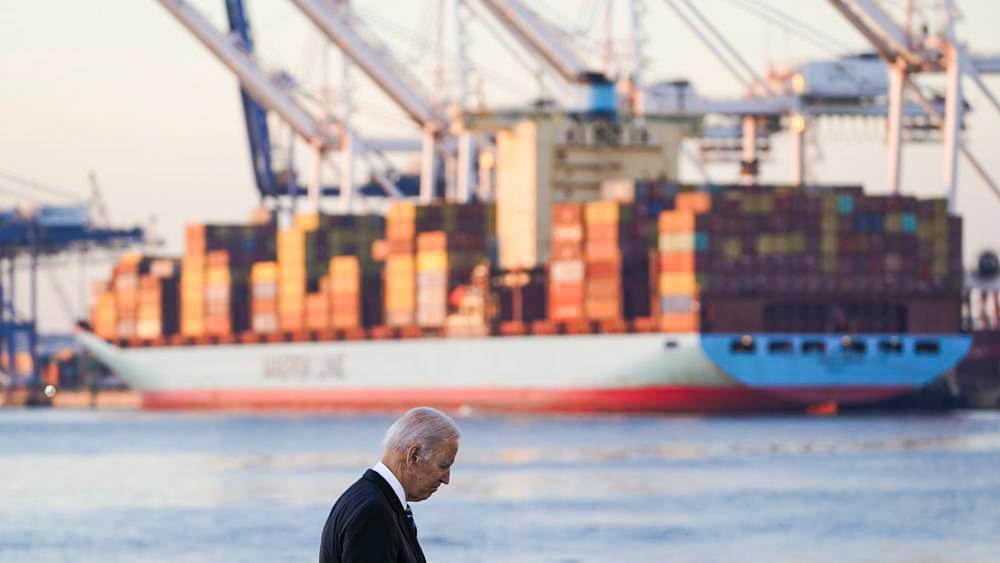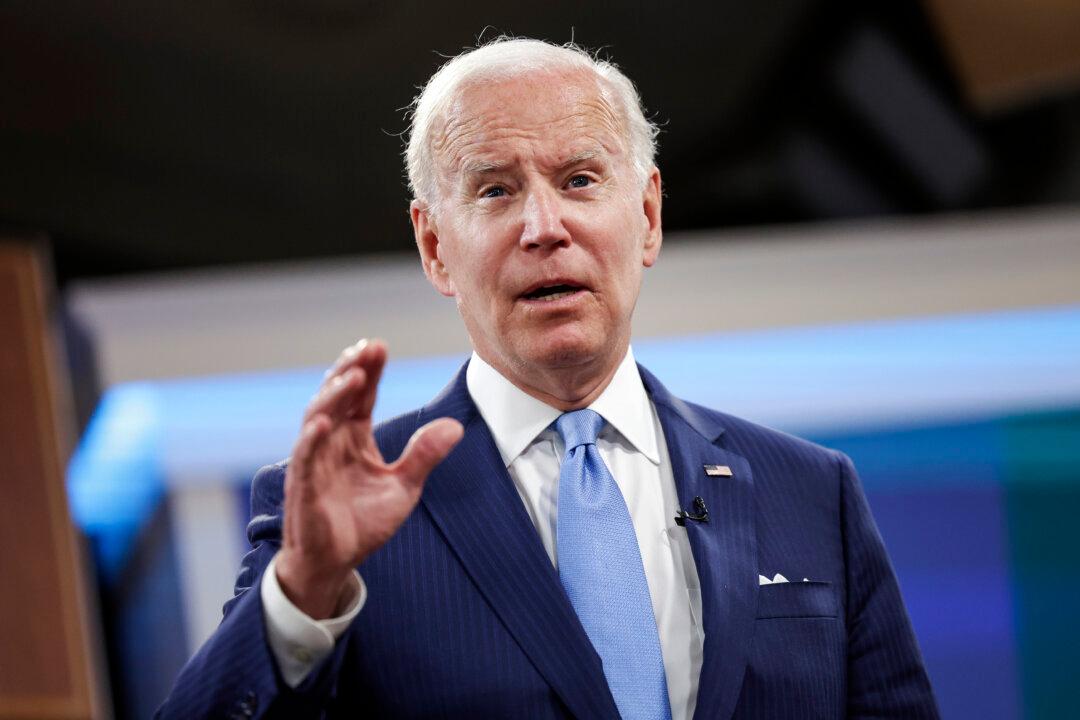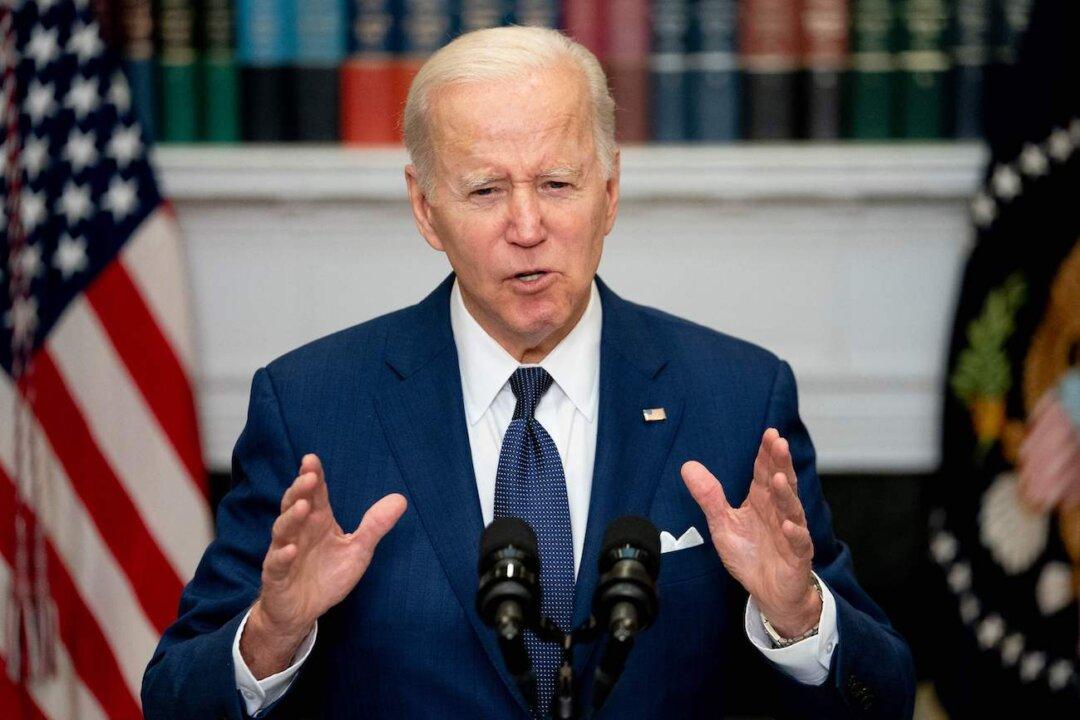President Joe Biden spoke to the nation’s increasing rate of inflation amid global supply chain issues in an address at the Port of Baltimore on Nov. 10.
A Department of Labor report released earlier the same day showed that in the 12 months through October the consumer price index surged 6.2 percent, the largest year-on-year increase since November 1990.




